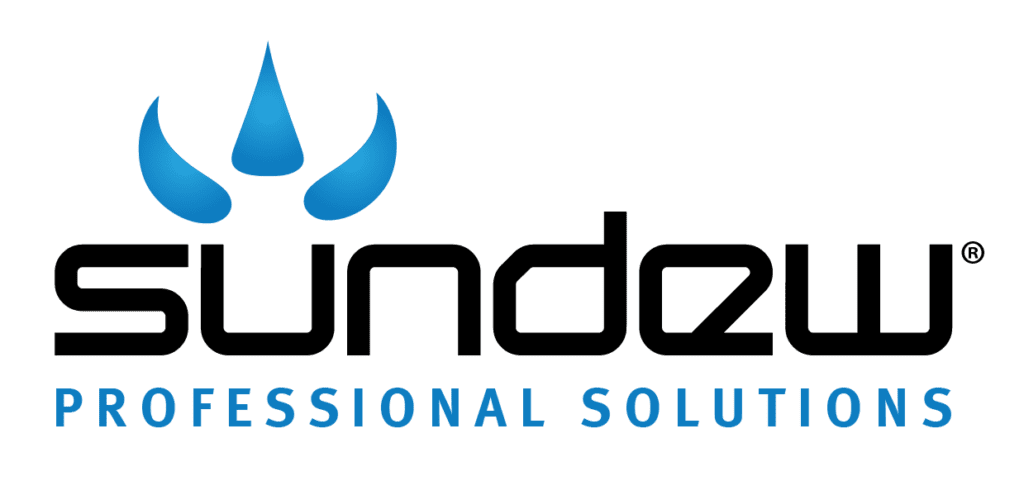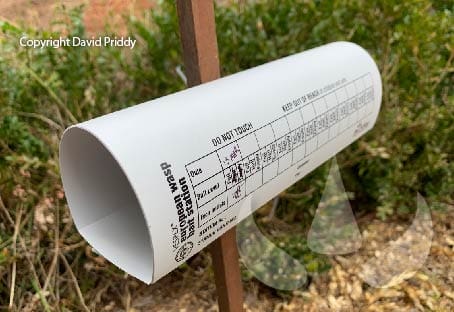Important News Bulletin, NEW Product Release from Sundew, Research and Development, Sundew Supporting the Professional Pest Management Segment
Wasp Baiting: A New Income Stream for Pest Management Professionals
December 2022 Published Australian PROFESSIONAL PEST MANAGER Magazine.
The European wasp (Vespula germanica) is native to Europe and Northern Africa. First discovered in Australia in 1956, they have been slowly gaining a foothold ever since.
European wasps are extremely aggressive. Unlike bees, they can sting multiple times and can release a pheromone to engage other members of the colony. Hundreds of stings can occur in a very short period of time but luckily no deaths have been attributed to European wasps in Australia.
In Europe, the cold winters mean most colonies completely collapse each year, however the Australian climate allows the wasps to survive year round. As a result, European wasp colonies are much larger here than in Europe, allowing the wasps to be a much greater threat to humans and animals.
Historically, treatment of European wasps required direct treatment of colonies with insecticidal dusts or liquids. Whilst this can be very effective, it does pose a serious risk to the treating technician. Where colonies are unable to be located, or are inaccessible, options have been limited.
In 2018, Sundew Solutions released its Vespex European Wasp Lure which enabled the reliable trapping of European wasp queens and workers. In April 2020, the label of Ensnare PRO was updated to include the remote baiting of European wasps when used with Vespex – Australia’s first approved baiting solution, researched and developed by Sundew Solutions.
Pest managers across Australia are now installing European wasp trapping and baiting systems in a similar fashion to termite baiting and monitoring systems. If wasp activity is already present, bait tunnels are installed with the Vespex lure to start the baiting process. Ensnare PRO is then added to eliminate the offending colony.
The monitoring part of the process uses Dominator wasp traps as monitoring stations. These are strategically placed, just as termite monitoring stations are, to enable effective detection of future wasp activity. When wasp activity is detected, remote baiting starts again. In early spring and late autumn, the Dominator traps are often very busy with European wasp queens both before and after overwintering.
Now that European wasps can be successfully eliminated remotely, this provides a new income stream that is being successfully implemented by pest managers and readily accepted by consumers.
One Vespex Accredited Specialist (VAS) in NSW has attributed more than half of his revenue to European wasp management. He has more than 50 sites in his hometown and his reach is increasing across his shire rapidly. He has many commercial properties that he services monthly for wasps and has just been awarded Council contracts for the second year running.
Why do sales come so easily? People who have experienced truly high amounts of pest pressure know that their very lifestyle and daily actions must change when the wasps are around. One lady in Mt Barker, South Australia could not feed the farm dogs outside as the wasps would fight the dogs for the food. A lady in East Gippsland, Victoria, had to spend the start of every day scooping out wasps that had fallen into water troughs before she could let her Angus cattle drink from them; she knew to do this after one of the cattle was stung in the throat and nearly died. These are just two examples of the many people who are being heavily impacted by wasps and are calling out for help.
European wasps are, in fact, an increasing national threat. European wasps have been commonplace for many years now throughout Western Australia, Tasmania, Victoria, ACT, South Australia and New South Wales. Already this spring, the team at Sundew have received many reports of European wasp queens in Sydney; this means that numbers will be up this year. At present, the established northern limit is the mid north coast of NSW, near Newcastle, but it is uncertain how changes in global temperatures may affect their distribution across the country.
Pest managers who are ready to offer wasp baiting to their customers can begin by becoming a Vespex Accredited Specialist. This will allow them access to all of the Vespex products and support, giving pest managers the opportunity to tap into this completely new area of pest control.
The cost for accreditation is minimal and comprises two online learning components. It takes around 1.5 hours to complete – a small investment to get you up and running in wasp baiting!
To learn more about becoming a VESPEX Accredited Specialist, or to register today click here>


